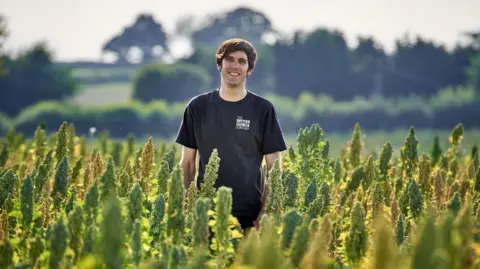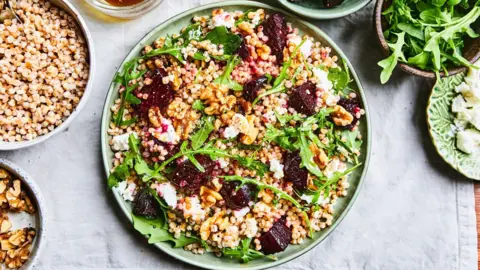Farmer chooses 'dry climate' of Essex for black barley
 Stephen Jones
Stephen JonesA farmer has chosen the 'dry climate' of Essex to grow two experimental crops.
Stephen Jones from Shropshire will cultivate black barley which can be used for making barley risottos or sprinkled on cereals and bread.
He will also grow piccolo wheat on Mersea Island as a sustainable and healthy alternative to giant couscous.
"Growers in Essex seem very keen on trying new things and being part of that experiment," said Mr Jones.
 Stephen Jones
Stephen JonesThe 37-year-old chose Essex because of its dry climate, which is needed to grow the crops.
"Essex has a relatively dry climate, so when it comes to harvest, we can maintain that grain quality. The black barley stays a nice dark colour, while the wheat maintains its texture."
He said the crops need "very low farming input" and do not need as much fertiliser or pesticides.
"By planting them in the spring, you're leaving the ground free for ground-nesting birds in the winter, so there is an environmental benefit there," he added.
Mr Jones believed there were also health benefits to this type of produce.
He said: "If you compare piccolo wheat with giant couscous, it [piccolo wheat] is hands down greater in fibre content.
"Black barley also has greater protein and fibre content than standard barley.
"People are looking for healthier, wholegrain nutrients in their diet."
Asked what the market would be like, Mr Jones - director of The British Quinoa Company - said he expected it to be a success.
"We're going into this without fully knowing the demand, but then we didn't know if there would be demand for quinoa [which is also grown in Essex]," he said.
If everything goes to plan, he expects to see both grains in production and available on the market by next year.
Follow Essex news on BBC Sounds, Facebook, Instagram and X.
